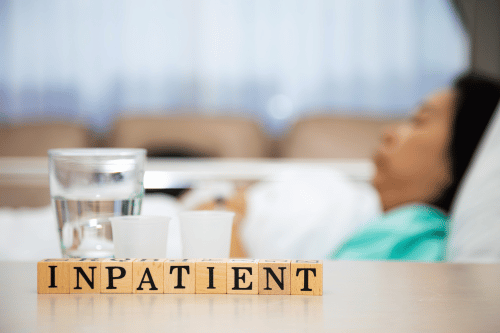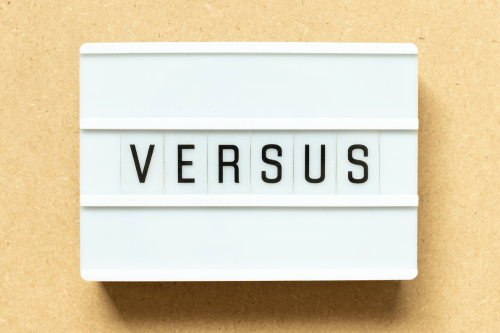Inpatient vs Outpatient Mental Health: Choosing the Right Treatment Option
Definitions of Inpatient and Outpatient Care
Mental health treatment is essential for individuals experiencing various mental health conditions, including mood disorders, bipolar disorder, substance use disorder, and co-occurring mental health disorders. When seeking mental health care, individuals often choose between inpatient care and outpatient mental health services. Understanding the key differences between inpatient and outpatient care is crucial for making an informed decision about the most suitable type of treatment.
What Is Inpatient Mental Health Care?
Inpatient mental health care involves staying at a residential facility, psychiatric unit, or inpatient facility for an extended period to receive 24-hour supervision, constant care, and medical attention. This intensive level of care is typically necessary for individuals experiencing severe substance abuse issues, suicidal ideation, severe addictions, or severe mental health crises. Inpatient treatment programs provide a structured environment that includes individual therapy, family therapy, cognitive-behavioral therapy, and dialectical behavior therapy.
What Is Outpatient Mental Health Care?
Outpatient mental health care allows individuals to receive comprehensive care while living at home. Unlike inpatient programs, outpatient programs provide therapy sessions, medication management, and individual counseling without requiring an overnight stay. Outpatient services are ideal for individuals managing mental illness, addiction issues, and co-occurring disorders who can function in their daily life with structured support. Various levels of care exist within outpatient treatment programs, including intensive outpatient treatment and partial hospitalization programs (PHPs).

Benefits of Inpatient Care
24/7 Medical Support
One of the primary advantages of inpatient treatment is access to 24-hour medical supervision and intensive care. Medical professionals, healthcare providers, and mental health professionals are available around the clock to provide immediate care for patients experiencing mental health crises, severe burns, or co-occurring mental health conditions.
Structured Environment
A structured environment removes distractions and stressors from everyday life, allowing individuals to focus entirely on their mental health journey. The intensity of treatment in an inpatient setting ensures that individuals receive the comprehensive range of therapeutic interventions needed for recovery.
Intensive Therapy Options
Inpatient therapy provides a combination of therapy sessions, including day-long therapy sessions, individual counseling, behavioral therapy, and addiction treatment programs. The level of intensity in inpatient services is higher than in outpatient treatment, making it a suitable option for those needing intensive treatment.
Drawbacks of Inpatient Care
Cost Implications
The cost for services in inpatient mental health programs can be significantly higher than outpatient services. Health insurance may cover part of the cost, but medical care, residential treatment, and specialized treatment can still be expensive.
Potential for Institutionalization
Staying in an inpatient facility for an extended period can sometimes make the transition back to daily routines more challenging. Individuals may struggle with consistent routines after discharge.
Limited Flexibility
Unlike outpatient care, inpatient treatment requires individuals to stay in a medical facility for an extended period, which may not be ideal for those who need to maintain work, school, or family obligations.
Benefits of Outpatient Care
Cost-Effectiveness
Outpatient treatment programs are generally more affordable than inpatient care. Insurance plans typically cover therapy sessions, medication-assisted treatment, and outpatient mental health services, making it a cost-effective option for many individuals.
Greater Independence
Unlike inpatient settings, outpatient care allows individuals to live at home, maintaining their daily routines while attending treatment sessions. This fosters a home-like environment that helps individuals integrate recovery into everyday life.
Integration with Daily Life
Patients in outpatient programs can continue their mental health journey while balancing responsibilities such as work, school, and family life. Outpatient rehab, outpatient treatment, and outpatient services provide flexibility while offering supportive environments.
Drawbacks of Outpatient Care
Less Immediate Support
Outpatient care does not offer constant supervision or 24-hour monitoring, which can be risky for individuals experiencing severe mental health issues.
Challenges in Consistency
Patients must be self-motivated to attend counseling sessions, medication management appointments, and therapy sessions, which can be challenging for those struggling with substance abuse or mental health conditions.
Risk of Non-Compliance
Some individuals may skip appointments, discontinue medication, or relapse without the structured environment provided in inpatient programs.
Factors Influencing Treatment Decisions

Severity of Symptoms
The level of care provided depends on the severity of an individual’s mental health condition, substance abuse disorder, or co-occurring disorders. Inpatient care is ideal for those with acute psychiatric symptoms, while outpatient care works for mild to moderate symptoms.
Personal Treatment History
Individuals with a history of mental health crises, addiction treatment, or repeated hospitalizations may benefit from a step-down approach, starting with inpatient treatment before transitioning to intensive outpatient services.
Cost and Accessibility Considerations
Insurance Coverage for Different Models
Many health insurance providers cover both inpatient services and outpatient treatment programs, but coverage levels vary. Checking insurance plans is essential for determining affordability.
Availability of Local Services
Access to mental health treatment options, medical procedures, and community health centers may influence the choice between inpatient vs. outpatient care.
Long-Term Financial Implications
While inpatient care is more expensive initially, it may reduce long-term care costs by preventing severe relapses or repeated hospitalizations.
Importance of Ongoing Care
Aftercare Planning
After completing an inpatient treatment program or outpatient rehab, aftercare planning ensures continuity of care through individual therapy, group therapy, and supportive mental health services.
Combining Treatment Modalities
A comprehensive approach to mental health may involve a combination of inpatient treatment, outpatient care, and medication-assisted treatment to provide continuous supervision and long-term care.
Continuity of Support in Recovery
Mental health recovery is a lifelong healing journey. Whether through inpatient therapy, outpatient mental health services, or a combination of treatment sessions, maintaining consistent routines and ongoing care is crucial for long-term recovery.
Conclusion
Choosing between inpatient and outpatient care depends on various factors, including mental health condition severity, treatment needs, cost considerations, and accessibility to mental health treatment options. Inpatient mental health programs provide intensive treatment for those in crisis, while outpatient programs offer a more flexible level of care. Regardless of the treatment option, ongoing support through mental health providers, therapy sessions, and medication management is essential for lasting recovery. If you or a loved one is struggling, seeking professional guidance from mental health professionals can help determine the best care plan for your needs.










